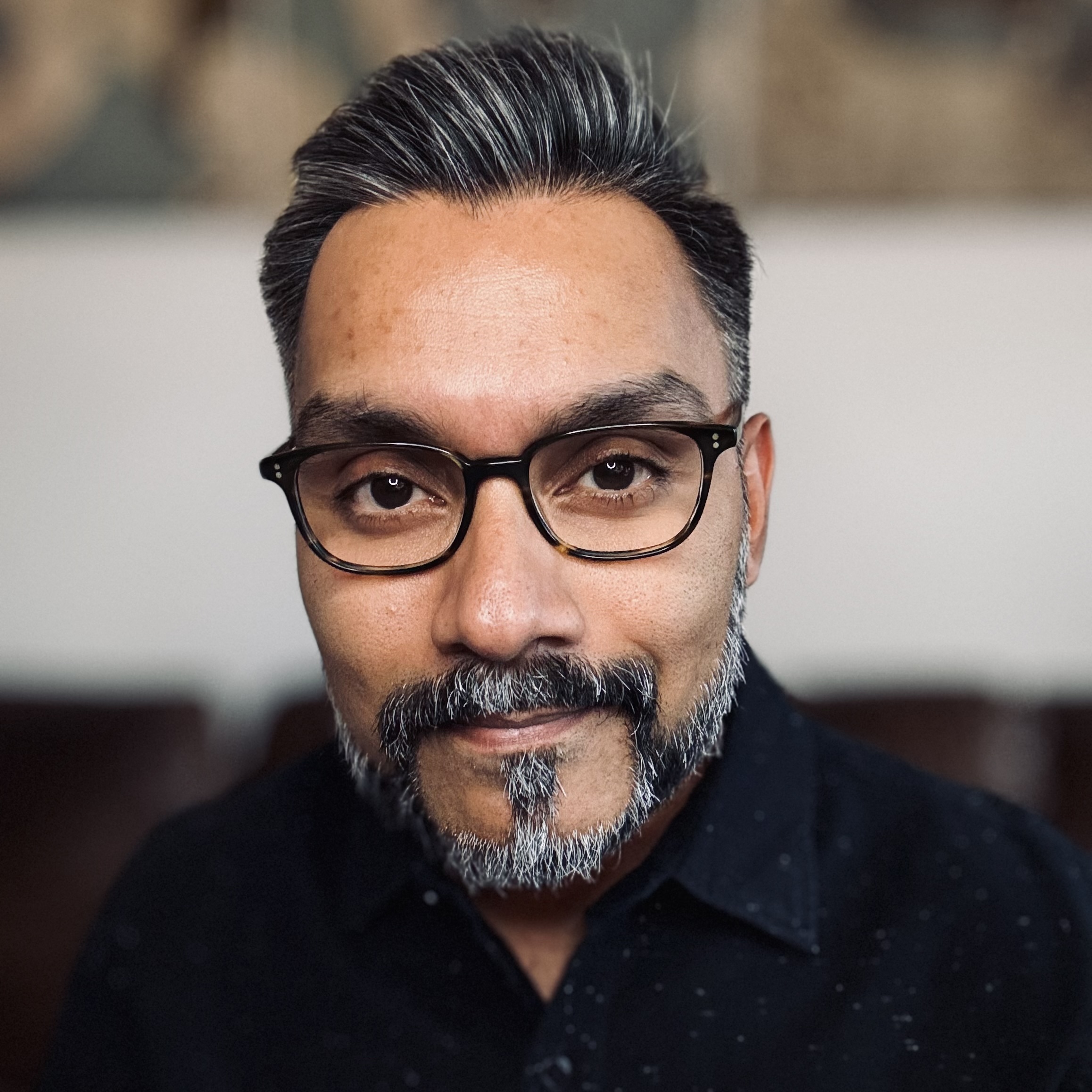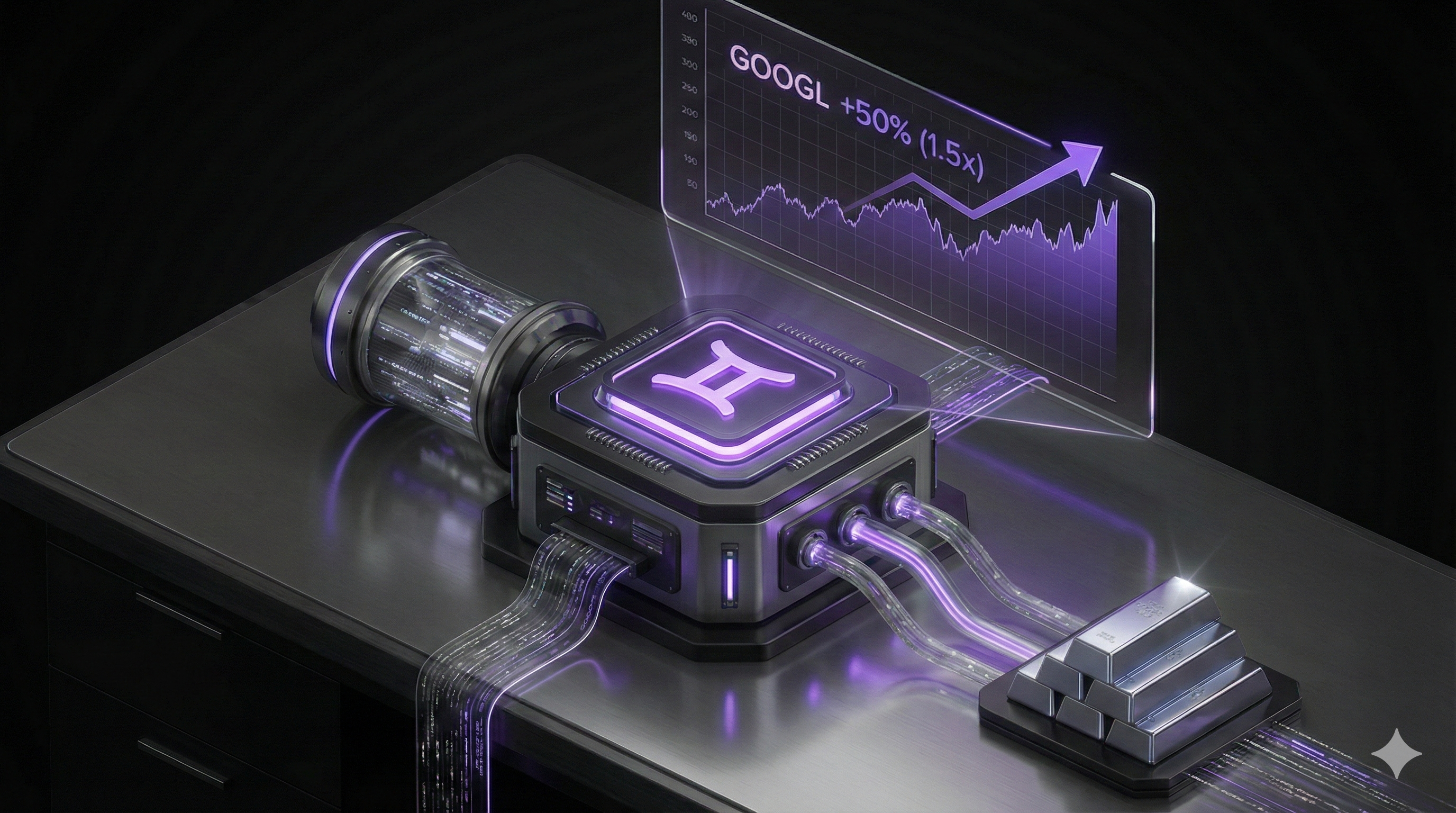From SPECIALIST to SYNTHESIST: My Career Renaissance


Sash Mohapatra

Sash spent 20 years at Microsoft guiding enterprise clients through the cloud revolution and the rise of AI. Now, as the founder of The Rift, he’s on a mission to enhance human potential by helping people develop practical, future-ready AI skills. He writes from a place of deep curiosity, exploring what it means to stay human as machines reshape the world around us.
March 10, 2025






"If you want to go far in tech, find a specialization and carve your niche." My manager's advice in 2004 resonated deeply as I began my journey at Microsoft, working on Exchange Servers.
Specialization was the undisputed truth of professional growth. Like many, I embraced this path wholeheartedly, evolving through various specialized roles: communications, network and identity systems, cloud computing, and eventually, AI. Each transition demanded new certifications, deeper expertise, and intense focus. It was the blueprint for success in technology.
Until now.
Subscribe now to unlock the full article and gain unlimited access to all premium content.
Subscribe"If you want to go far in tech, find a specialization and carve your niche." My manager's advice in 2004 resonated deeply as I began my journey at Microsoft, working on Exchange Servers.
Specialization was the undisputed truth of professional growth. Like many, I embraced this path wholeheartedly, evolving through various specialized roles: communications, network and identity systems, cloud computing, and eventually, AI. Each transition demanded new certifications, deeper expertise, and intense focus. It was the blueprint for success in technology.
Until now.
The Triumph of the Specialist
The story of human progress is, in many ways, a story of specialization. Back in 1776, Adam Smith brought this to life with a striking example: a pin factory. On his own, a worker might struggle to make even a handful of pins in a day. But divide the process into distinct tasks — one person drawing the wire, another cutting it, another sharpening the point — and something remarkable happens. Ten workers, each focused on a single step, could now produce 48,000 pins a day. That’s 4,800 per person. Specialization didn’t just boost output — it rewired the very nature of work and laid the foundation for the modern economy.
This specialization trend intensified in the early 1900s with Frederick Winslow Taylor’s Scientific Management theory, which broke down tasks into simpler, repetitive components to boost productivity. While this increased efficiency, it often sacrificed creativity and holistic understanding—a trade-off we grapple with even today.
Scientific revolutions cemented specialization further—physics, chemistry, biology, medicine—each splitting into distinct, specialized disciplines. This specialization fueled extraordinary discoveries. Every new specialty forged its own knowledge base, methods, and breakthroughs.
In my own technology career, this pattern repeated endlessly. Innovation spawned ever-new specialties, demanding years of dedicated study and practice. We knew our roles clearly until artificial intelligence began redrawing the professional map.
The Great Unraveling
Today, specialization itself is being disrupted. According to the World Economic Forum’s Future of Jobs Report 2025, 39% of workers’ current skills are expected to be either transformed or rendered obsolete by 2030 — a massive shift affecting nearly 600 million people globally. This isn’t just another cycle of technological change; it’s a structural realignment of what skills the workforce needs to thrive.
The report also estimates that 92 million jobs could be displaced by 2030, driven largely by advancements in AI, automation, and shifting economic conditions. Yet, it’s not all contraction — 170 million new jobs are expected to be created, resulting in a net gain of 78 million jobs, or 7% of today’s global employment.
This is less about replacement, and more about redefinition: the roles that will thrive are those centered around adaptability, synthesis, and human-machine collaboration.
Synthesis, as a Skill
The future doesn't belong solely to specialists or generalists—it belongs to synthesists who weave multiple domains of knowledge using AI as their loom. Having transitioned across many specializations myself, I've experienced firsthand how this synthesis works. Initially, each transition felt daunting, requiring intense re-learning and refocusing. Yet, looking back, these shifts were the perfect preparation for today's AI-driven world.
Working across specialized domains cultivated what I now call a "systems mindset." This perspective provided a bird's-eye view of how technologies integrate, how data flows seamlessly between modular systems, and how seemingly disconnected ideas connect to create value. Ironically, mastering multiple specialties evolved into a generalized yet deeply insightful understanding of technology as a whole.
Leonardo da Vinci embodied this synthesist mindset centuries ago, excelling simultaneously in art, engineering, anatomy, and mathematics. Today, as I build "The Rift," this systems mindset has become invaluable. Leveraging AI, I synthesize diverse ideas, rapidly understand how different systems interconnect, and actively "build" rather than passively manage specialized tasks.
Yet, skepticism about AI’s impact on specialized labor remains strong. Specialists who invested years mastering a single discipline fear automation might diminish their value. But here's my perspective: your depth of expertise still holds tremendous value. Instead of viewing AI as a threat, consider it your ally. Offload repetitive, time-consuming tasks to AI, freeing yourself to elevate your role strategically and creatively within your discipline.
This shift opens up entirely new possibilities—exploring novel models, creating unexpected connections across different fields, and sparking genuine innovation. Your specialized knowledge becomes the powerful foundation from which you can now explore and synthesize broader, more innovative ideas.
Consider roles like AI Ethics Officers, who blend deep technical expertise with philosophical insights, or Biotech Data Strategists, who merge biology, data science, and business strategy. These aren't niche roles—they represent a transformative approach to how we create value.
The Generational Plot Twist
Tech narratives often oversimplify generational divides: digital natives adapt effortlessly, while seasoned professionals struggle. Reality is more nuanced. Success hinges less on age and more on how you think. I've seen veteran engineers thrive in AI because they intuitively grasp technology's underlying patterns, whereas younger graduates may understand tools superficially without recognizing broader implications.
The Art of Synthesis
Successful synthesists share key traits:
- Curiosity transcending domain boundaries
- Courage to challenge established patterns
- Emphasis on process rather than rigid outcomes
Each past specialization adds a new layer to your ability to perceive connections. My previous roles now enable me to see clearly how AI can reshape content, technology, and business models simultaneously. Synthesis itself has become my latest "specialization."
Your Renaissance Moment
For the first time since the Scientific Revolution, technology encourages integration over further fragmentation. AI automation means human value increasingly lies in connecting different expertise types and insights. Your ability to weave together multiple domains will become your greatest asset.
Your journey from specialist to synthesist naturally unfolds:
- Start from Your Strengths – Recognize synthesis as a muscle you strengthen through practice. Let AI handle specialized tasks; your job is to find connections only humans can make.
- Bridge with AI – AI is your partner, automating routine tasks while expanding your creative horizon. Use it as a tool to discover and explore new fields.
- Create New Combinations – Innovation happens when you synthesize ideas across domains. This is the true power of synthesis.
.png)
A New Chapter Begins
Specialization isn’t fading — it’s transforming. As AI takes over the known and repeatable, our edge lies in what it can’t automate: synthesis. The ability to see patterns, draw from diverse domains, and connect the dots in ways machines can’t.
This isn’t the end of expertise — it’s the beginning of a broader canvas. Each skill you’ve honed is a color, and your value now comes from how boldly you blend them.
The future belongs to the synthesists. Welcome to your renaissance.
"If you want to go far in tech, find a specialization and carve your niche." My manager's advice in 2004 resonated deeply as I began my journey at Microsoft, working on Exchange Servers.
Specialization was the undisputed truth of professional growth. Like many, I embraced this path wholeheartedly, evolving through various specialized roles: communications, network and identity systems, cloud computing, and eventually, AI. Each transition demanded new certifications, deeper expertise, and intense focus. It was the blueprint for success in technology.
Until now.
The Triumph of the Specialist
The story of human progress is, in many ways, a story of specialization. Back in 1776, Adam Smith brought this to life with a striking example: a pin factory. On his own, a worker might struggle to make even a handful of pins in a day. But divide the process into distinct tasks — one person drawing the wire, another cutting it, another sharpening the point — and something remarkable happens. Ten workers, each focused on a single step, could now produce 48,000 pins a day. That’s 4,800 per person. Specialization didn’t just boost output — it rewired the very nature of work and laid the foundation for the modern economy.
This specialization trend intensified in the early 1900s with Frederick Winslow Taylor’s Scientific Management theory, which broke down tasks into simpler, repetitive components to boost productivity. While this increased efficiency, it often sacrificed creativity and holistic understanding—a trade-off we grapple with even today.
Scientific revolutions cemented specialization further—physics, chemistry, biology, medicine—each splitting into distinct, specialized disciplines. This specialization fueled extraordinary discoveries. Every new specialty forged its own knowledge base, methods, and breakthroughs.
In my own technology career, this pattern repeated endlessly. Innovation spawned ever-new specialties, demanding years of dedicated study and practice. We knew our roles clearly until artificial intelligence began redrawing the professional map.
The Great Unraveling
Today, specialization itself is being disrupted. According to the World Economic Forum’s Future of Jobs Report 2025, 39% of workers’ current skills are expected to be either transformed or rendered obsolete by 2030 — a massive shift affecting nearly 600 million people globally. This isn’t just another cycle of technological change; it’s a structural realignment of what skills the workforce needs to thrive.
The report also estimates that 92 million jobs could be displaced by 2030, driven largely by advancements in AI, automation, and shifting economic conditions. Yet, it’s not all contraction — 170 million new jobs are expected to be created, resulting in a net gain of 78 million jobs, or 7% of today’s global employment.
This is less about replacement, and more about redefinition: the roles that will thrive are those centered around adaptability, synthesis, and human-machine collaboration.
Synthesis, as a Skill
The future doesn't belong solely to specialists or generalists—it belongs to synthesists who weave multiple domains of knowledge using AI as their loom. Having transitioned across many specializations myself, I've experienced firsthand how this synthesis works. Initially, each transition felt daunting, requiring intense re-learning and refocusing. Yet, looking back, these shifts were the perfect preparation for today's AI-driven world.
Working across specialized domains cultivated what I now call a "systems mindset." This perspective provided a bird's-eye view of how technologies integrate, how data flows seamlessly between modular systems, and how seemingly disconnected ideas connect to create value. Ironically, mastering multiple specialties evolved into a generalized yet deeply insightful understanding of technology as a whole.
Leonardo da Vinci embodied this synthesist mindset centuries ago, excelling simultaneously in art, engineering, anatomy, and mathematics. Today, as I build "The Rift," this systems mindset has become invaluable. Leveraging AI, I synthesize diverse ideas, rapidly understand how different systems interconnect, and actively "build" rather than passively manage specialized tasks.
Yet, skepticism about AI’s impact on specialized labor remains strong. Specialists who invested years mastering a single discipline fear automation might diminish their value. But here's my perspective: your depth of expertise still holds tremendous value. Instead of viewing AI as a threat, consider it your ally. Offload repetitive, time-consuming tasks to AI, freeing yourself to elevate your role strategically and creatively within your discipline.
This shift opens up entirely new possibilities—exploring novel models, creating unexpected connections across different fields, and sparking genuine innovation. Your specialized knowledge becomes the powerful foundation from which you can now explore and synthesize broader, more innovative ideas.
Consider roles like AI Ethics Officers, who blend deep technical expertise with philosophical insights, or Biotech Data Strategists, who merge biology, data science, and business strategy. These aren't niche roles—they represent a transformative approach to how we create value.
The Generational Plot Twist
Tech narratives often oversimplify generational divides: digital natives adapt effortlessly, while seasoned professionals struggle. Reality is more nuanced. Success hinges less on age and more on how you think. I've seen veteran engineers thrive in AI because they intuitively grasp technology's underlying patterns, whereas younger graduates may understand tools superficially without recognizing broader implications.
The Art of Synthesis
Successful synthesists share key traits:
- Curiosity transcending domain boundaries
- Courage to challenge established patterns
- Emphasis on process rather than rigid outcomes
Each past specialization adds a new layer to your ability to perceive connections. My previous roles now enable me to see clearly how AI can reshape content, technology, and business models simultaneously. Synthesis itself has become my latest "specialization."
Your Renaissance Moment
For the first time since the Scientific Revolution, technology encourages integration over further fragmentation. AI automation means human value increasingly lies in connecting different expertise types and insights. Your ability to weave together multiple domains will become your greatest asset.
Your journey from specialist to synthesist naturally unfolds:
- Start from Your Strengths – Recognize synthesis as a muscle you strengthen through practice. Let AI handle specialized tasks; your job is to find connections only humans can make.
- Bridge with AI – AI is your partner, automating routine tasks while expanding your creative horizon. Use it as a tool to discover and explore new fields.
- Create New Combinations – Innovation happens when you synthesize ideas across domains. This is the true power of synthesis.
.png)
A New Chapter Begins
Specialization isn’t fading — it’s transforming. As AI takes over the known and repeatable, our edge lies in what it can’t automate: synthesis. The ability to see patterns, draw from diverse domains, and connect the dots in ways machines can’t.
This isn’t the end of expertise — it’s the beginning of a broader canvas. Each skill you’ve honed is a color, and your value now comes from how boldly you blend them.
The future belongs to the synthesists. Welcome to your renaissance.


.svg)


